Ask Frasa
Transform any text instantly. Translate, simplify, adjust tone, or improve clarity — saving you hours of manual editing.
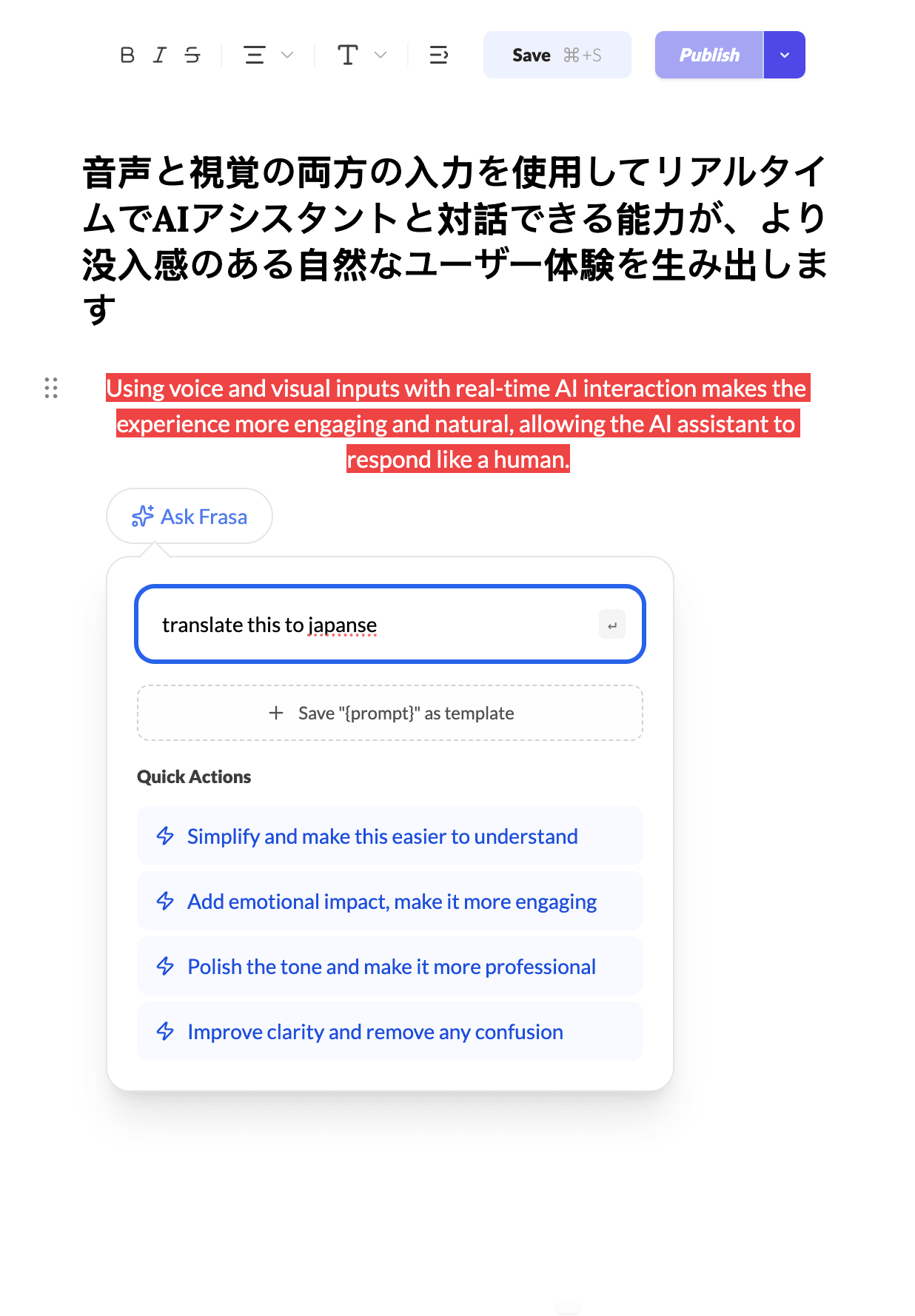
The AI writing assistant that helps you craft perfect content, reword and paraphrase seamlessly, and get real-time writing insights. Turn your ideas into polished articles in minutes, not hours. for
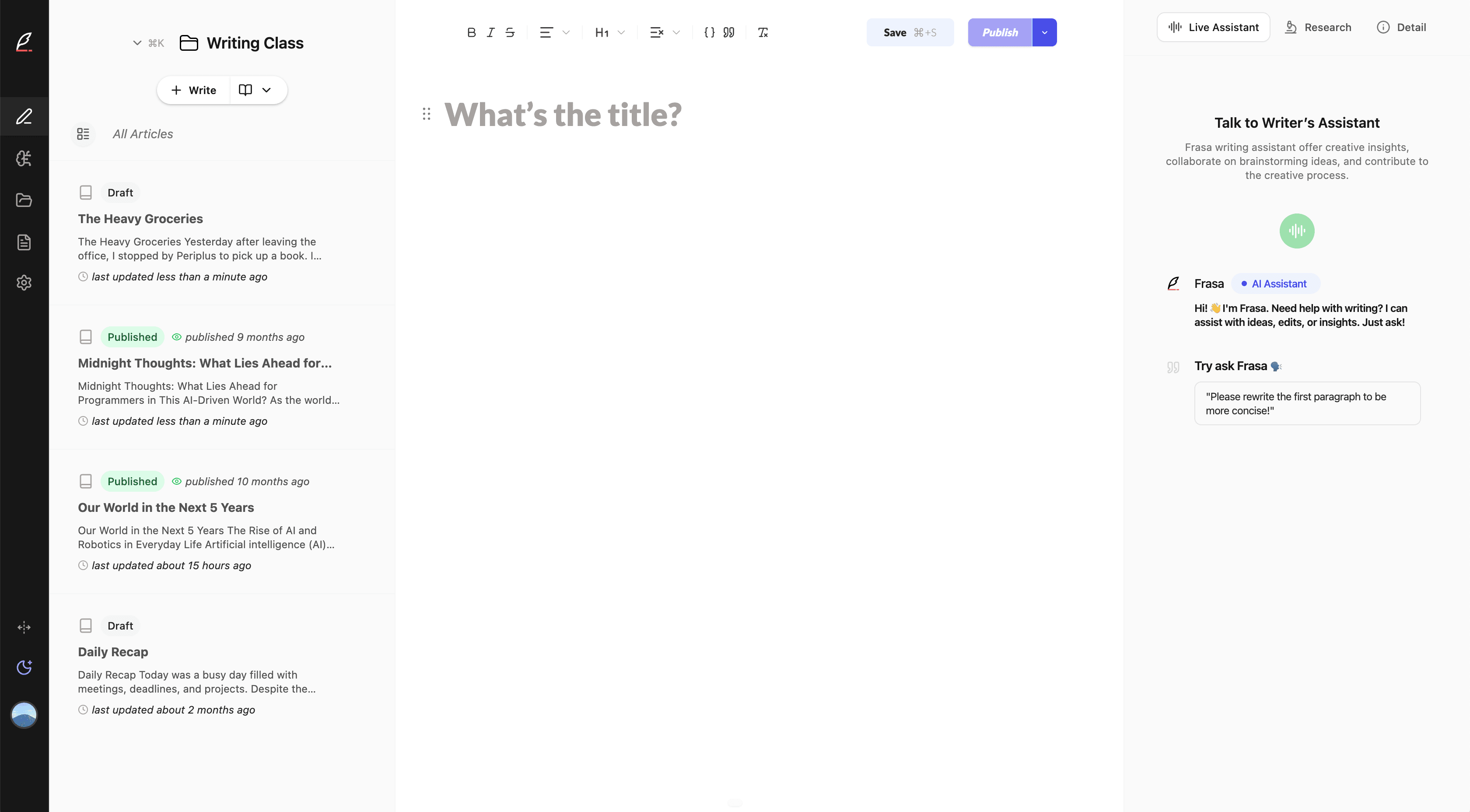
More than a writing tool — an all-in-one platform that supercharges your creative process. AI-powered assistance, intuitive research tools, and seamless publishing help you deliver your best work, faster.
3x
Faster Writing
5+
Hours Saved Weekly
2,000+
Happy Writers
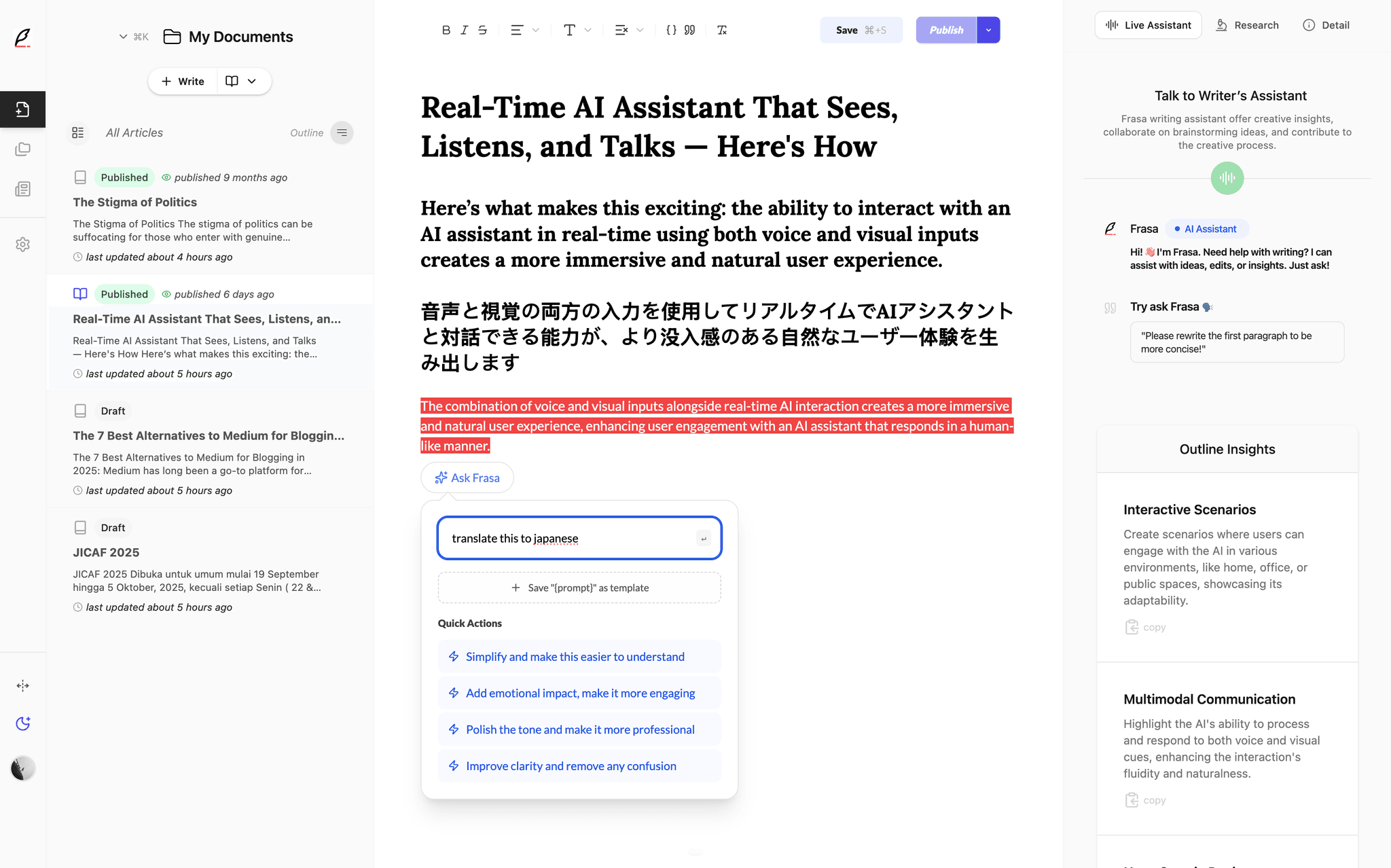
Transform any text instantly. Translate, simplify, adjust tone, or improve clarity — saving you hours of manual editing.

Never face writer's block again. Get instant creative suggestions, brainstorm ideas, and write with confidence.
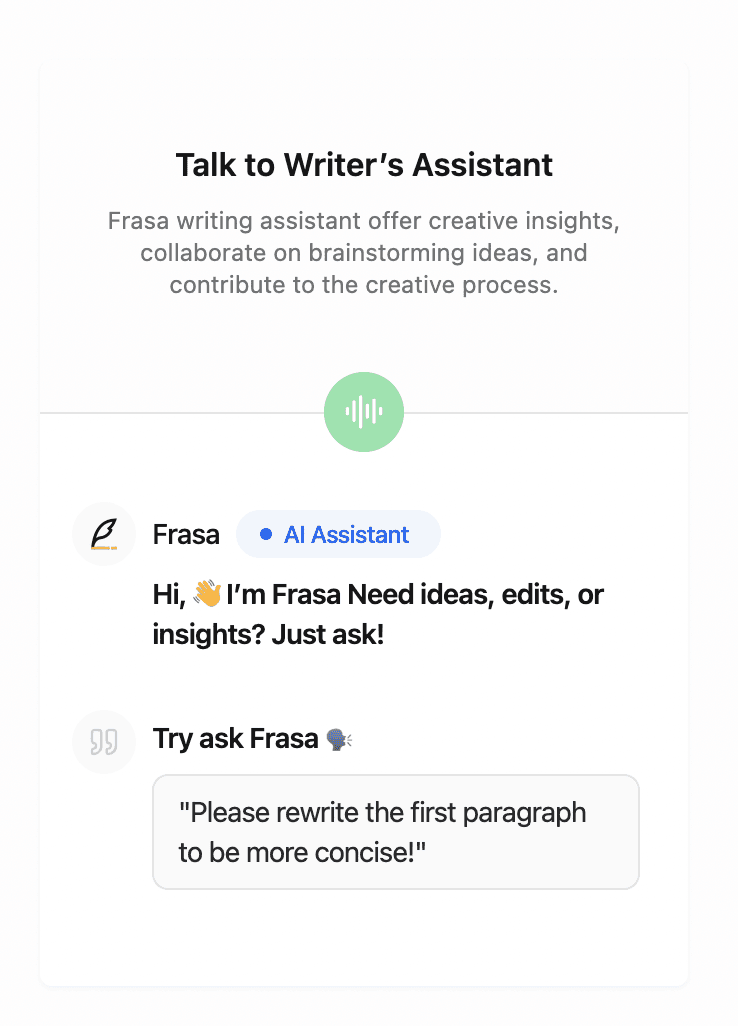
Stay in your creative flow. AI auto-completes your sentences matching your unique writing style — write 3x faster.

Research in seconds, not hours. Find facts, generate ideas, and get insights without leaving your editor.
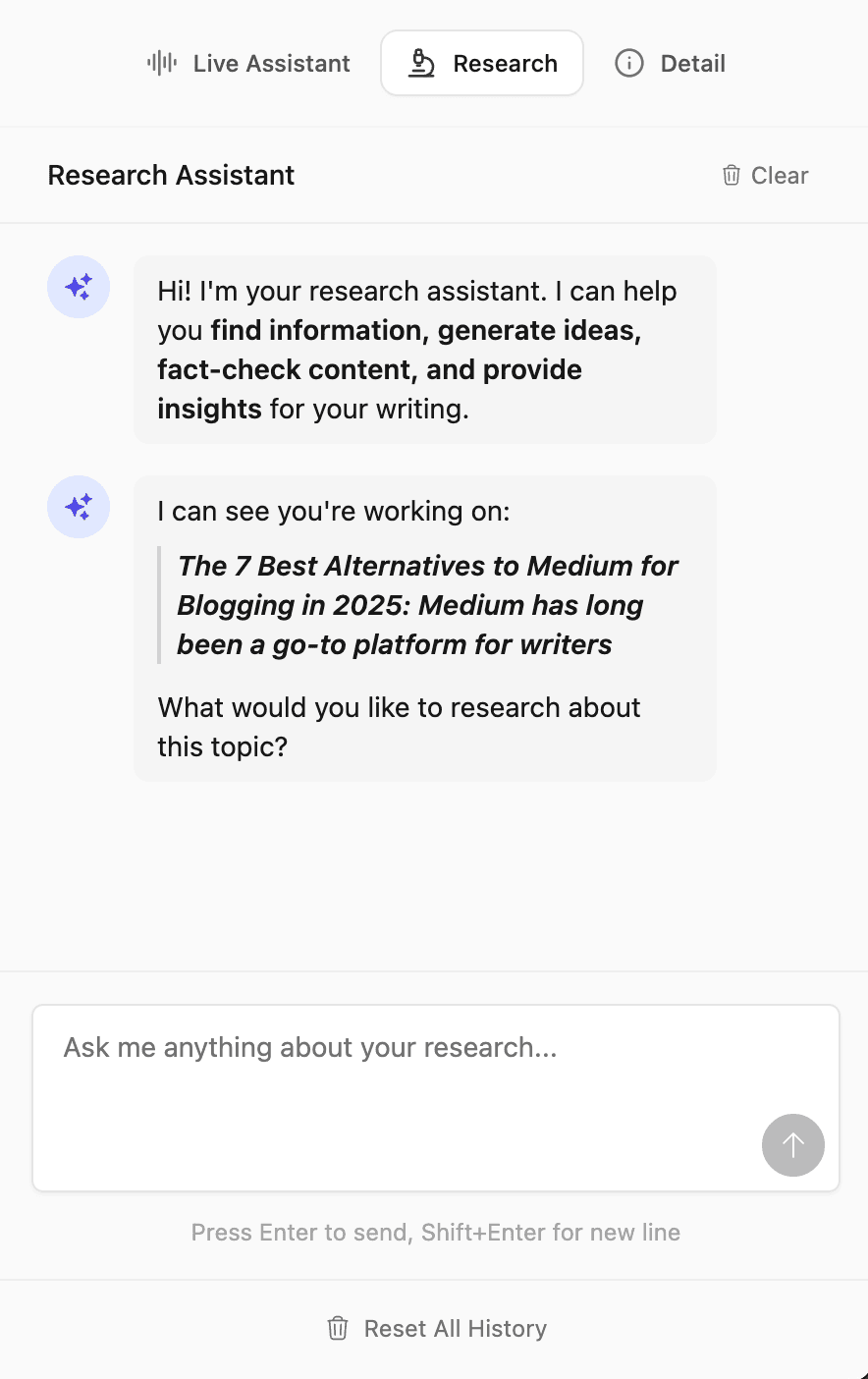
Make every sentence shine. Get alternative phrasings that enhance clarity and avoid repetition effortlessly.

Find the perfect word every time. AI suggests words that match your intent and resonate with your audience.

Start writing in seconds. Professional templates for articles, blogs, and more — no blank page anxiety.
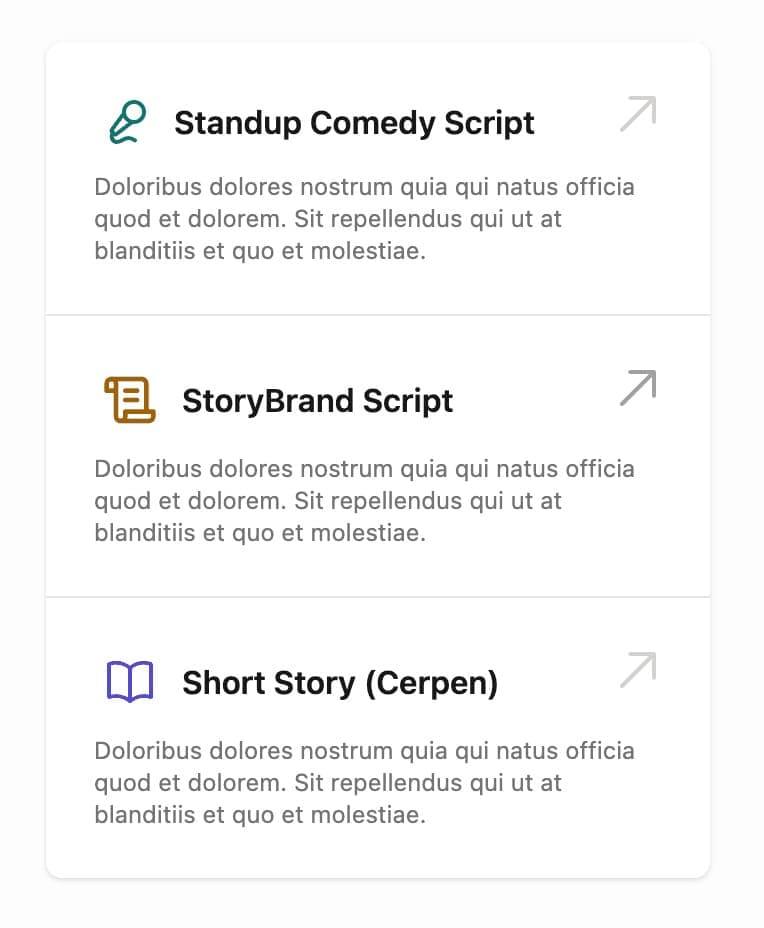
Write freely, publish safely. Protect your identity while building your audience under any pen name.
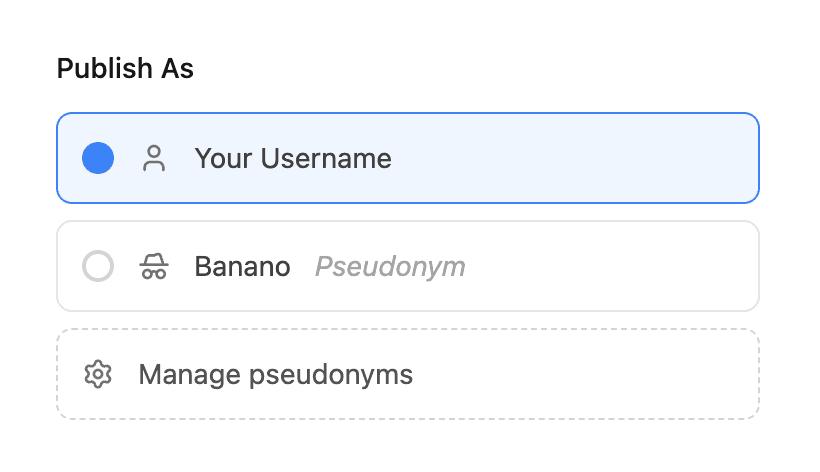
One click to publish everywhere. Share your content across platforms without copy-pasting or reformatting.

If you have anything else you want to ask, reach out to us.
Frasa.io is a collaborative SaaS platform designed to enhance your writing experience with tools like writing assistants, reword & rephrase, and research tool
Work in progress: We are actively developing our research tool to allow you to find sources and references directly from the platform. Stay tuned for updates!
Give creative inputs, brainstorming ideas and contributing to the creative process. Offering feedback on scripts or written materials based on your writing
No, real-time collaboration is not available at the moment. However, this feature is planned for a future release and will be launching soon!
Yes, Frasa.io supports writing in multiple languages, We're continuously expanding our language capabilities to serve a global audience.
Yes, we offer a free trial so you can explore all the features before committing to a subscription.